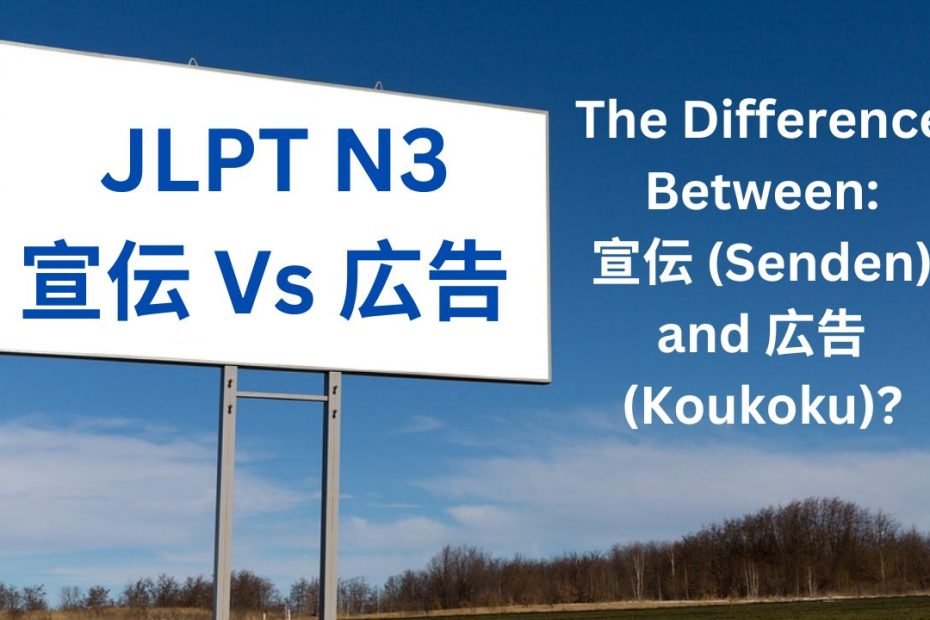Certainly! Both 宣伝 (Senden) and 広告 (Koukoku) are related to advertising and promotion, but they have slightly different nuances in meaning and usage.
- 宣伝 (Senden):
- Meaning: 宣伝 refers to “publicity” or “promotion.” It involves activities or efforts to spread information about a product, service, event, or idea to the public.
- Usage: 宣伝 can be used in a broader sense. It includes various methods of spreading information, such as through advertisements, press releases, social media, word-of-mouth, and other promotional activities.
- Example Sentence: この新製品の宣伝活動はどう進めますか? (Kono shinseihin no senden katsudou wa dou susumemasu ka?) – “How are we going to proceed with the publicity campaign for this new product?”
- 広告 (Koukoku):
- Meaning: 広告 specifically refers to “advertisements.” This term is more focused on the actual content, such as visual or written messages designed to promote a product, service, or event.
- Usage: 広告 is a more specific term and is commonly associated with paid promotions. It encompasses various forms of media, including TV commercials, print ads, online banners, and more.
- Example Sentence: この雑誌に掲載された広告は効果的だった。 (Kono zasshi ni keisai sareta koukoku wa koukateki datta.) – “The advertisement published in this magazine was effective.”
In summary, while both 宣伝 and 広告 deal with promotion and advertising, 宣伝 has a broader scope, encompassing various promotional activities beyond just formal advertisements. 広告, on the other hand, specifically refers to the content and materials used for advertising purposes. It’s important to note that in real-world usage, the distinction might not always be very strict, and the terms can sometimes overlap in meaning.
Certainly! Both 宣伝 (Senden) and 広告 (Koukoku) are related to advertising and promotion, but they have slightly different nuances in meaning and usage.
- 宣伝 (Senden):
- Meaning: 宣伝 refers to “publicity” or “promotion.” It involves activities or efforts to spread information about a product, service, event, or idea to the public.
- Usage: 宣伝 can be used in a broader sense. It includes various methods of spreading information, such as through advertisements, press releases, social media, word-of-mouth, and other promotional activities.
- Example Sentence: この新製品の宣伝活動はどう進めますか? (Kono shinseihin no senden katsudou wa dou susumemasu ka?) – “How are we going to proceed with the publicity campaign for this new product?”
- 広告 (Koukoku):
- Meaning: 広告 specifically refers to “advertisements.” This term is more focused on the actual content, such as visual or written messages designed to promote a product, service, or event.
- Usage: 広告 is a more specific term and is commonly associated with paid promotions. It encompasses various forms of media, including TV commercials, print ads, online banners, and more.
- Example Sentence: この雑誌に掲載された広告は効果的だった。 (Kono zasshi ni keisai sareta koukoku wa koukateki datta.) – “The advertisement published in this magazine was effective.”
In summary, while both 宣伝 and 広告 deal with promotion and advertising, 宣伝 has a broader scope, encompassing various promotional activities beyond just formal advertisements. 広告, on the other hand, specifically refers to the content and materials used for advertising purposes. It’s important to note that in real-world usage, the distinction might not always be very strict, and the terms can sometimes overlap in meaning.
